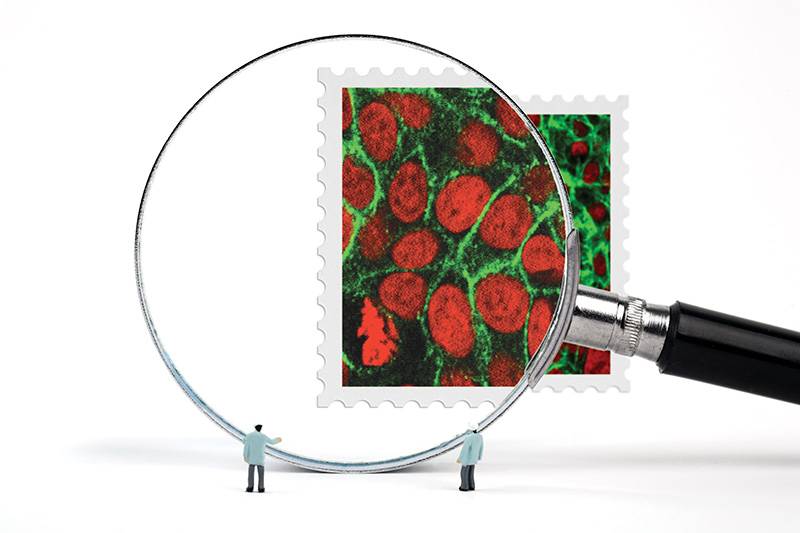Despite advances in early detection and treatment, colorectal cancer remains the third-leading cause of cancer-related death for both men and women in the U.S. But promising new therapies might be on the horizon, thanks to innovative technology from USC scientists.
Experts from the Lawrence J. Ellison Institute for Transformative Medicine of USC will use $2.74 million from the National Cancer Institute to develop a “cancer-on-a-chip” model.
The approach creates a tiny 3D replica of living human colon cells on a flexible membrane, or chip, about the size of a postage stamp. Scientists could use this colorectal cancer on a chip to study how malignant cells spread. It also may help them determine why the cells might resist certain treatments and test ways to prevent or delay tumor growth—all without putting patients at risk.
ABOUT 4% OF AMERICANS WILL DEVELOP COLORECTAL CANCER AT SOME POINT IN THEIR LIFE.
The researchers’ work is critical. About 4% of Americans will develop colorectal cancer at some point in their life, according to the American Cancer Society, and nearly 150,000 cases are diagnosed each year.
The researchers are cancer cell biologist Shannon Mumenthaler, an assistant professor of medicine at the Keck School of Medicine of USC; biostatistician Dan Ruderman, an assistant professor of research medicine at the Keck School of Medicine; medical oncologist Heinz-Josef Lenz, co-director of the USC Norris Center for Cancer Drug Development, the J. Terrence Lanni Chair in Gastrointestinal Cancer Research and co-director of the USC Center for Molecular Pathway and Drug Discovery; and biophysicist Scott E. Fraser, Provost Professor of Biological Sciences and Biomedical Engineering and director of science initiatives.
Curious? Learn more about the colorectal cancer on a chip project from the National Cancer Institute.

